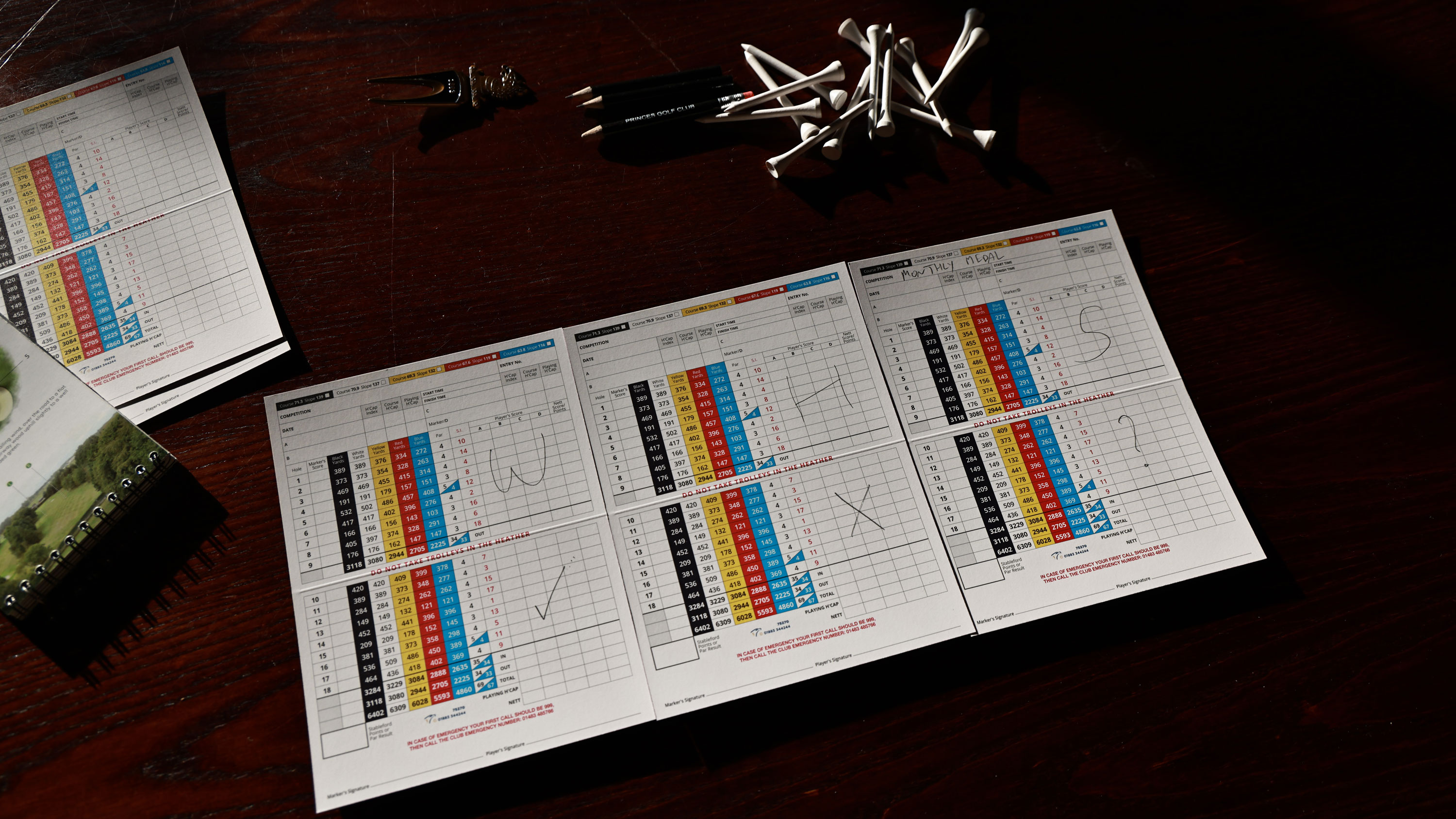
It’s not controversial to suggest the World Handicap System is divisive. There are countless positives and hundreds of thousands of golfers around the world are pleased it came into being in 2020. I count myself as one of those.
But there are plenty of others who oppose the new framework and preferred the old CONGU system, the previous iteration in the history of handicapping.
I’d had conversations with low-handicappers and read articles about how the WHS has ruined golf for low-handicappers and it’s the only sport that rewards mediocrity, but I perhaps underestimated just how many really good players are opposed to the system.
In the Golf Monthly office, nine members of staff are single-figure golfers (and one is a pro). I asked all of them whether they were pro or anti-WHS and seven of them came down on the anti side. I then asked two follow-up questions in the group chat, which led to plenty of heated debate and discussion.
I was keen to establish why they weren’t fans of the new framework and whether the main issues they were talking about carried over from the CONGU system.
“Go back to the old system, it was fine,” said Conor Keenan, a 7.3-handicapper. “Agreed. The old system was great with its buffer zones,” added Elliott Heath (6).
“Back then, anyone in our club could win any competition and nobody ever touched 40 points. Now there’s a 41/42 every Sunday. On a tough day, 37 points used to give you a chance, but now it might get you top 20,” said Conor.
“Truly, anyone could win with the old system. After a few holes, you'd be trying to predict the winning score (i.e. 'I think someone will shoot 38 in this today'). Now we don't bother because there will inevitably be a 41/42 from a double-figure handicapper and we know none of us can win.”
“Our club champion was giving 34 shots in a summer knockout. He was 4-up with four to play and his opponent then went net hole-in-one, net eagle, net birdie, net eagle and net birdie to beat him on the first play-off hole!” said Matt Cradock (3.9).

'Easy to manipulate'
I certainly see why a low-handicapper would be frustrated by the aforementioned scenarios, even if some of the follow-up comments from worse golfers in the team were less than sympathetic. As Barry Plummer (23.5) put it, “it must be terrible being really good at golf.”
Nevertheless, I was eager to understand exactly what the low-handicappers’ issues were and whether there were any common themes.
“Inflated handicaps, partly because our slope rating is so high, so someone in the low 20s is getting a mid- to high-20s playing handicap on our championship course,” said Conor.
“I think the new system is very easy to manipulate and people can see what scores are coming off and going on. If they didn't know their scores, then they wouldn't perhaps be able to do that, as they wouldn't know what is due to come off,” explained Matt.
“Putting in a card away from a competition can easily lead to people putting in false scores or not registering their round until they know they're playing poorly, or well, depending on what outcome they want from it,” added Sam De’Ath (+2.8).
At this point, the conversations switched to the oft-discussed topic of general play score submissions versus those achieved under the pressure of competition.
It’s something I’ve written about before as I’m concerned about what I perceive to be a growing divide between nomadic golfers and club members when it comes to handicapping.
“Golf and competition golf are very different and cards handed in outside of competition mean a lot less, in my opinion,” said Joe Ferguson, a professional.
“If your handicap hasn't been sculpted from playing in competition with a card in your hand (playing 'proper' rules, which quite a lot of my mates don't seem to casually!) then to me it isn't particularly relevant.”

Quiz: How well do you understand the WHS?
'Some players cannot be trusted'
As far as I’m concerned, there is absolutely pressure when you’re submitting a general play score. If you’re playing well, you’re always aware of that and your mind starts to wander. If your best round is within touching distance, you’re nervous over every shot.
Also, in my experience, the vast majority of people who put in a general play card adhere to the rules of golf and the rules of handicapping. Still, I take Joe’s point.
“People can hand in scores whenever they want, not declare others and get their mates to verify scores when they aren't present. All it has shown me is that some players cannot be trusted and just manipulate the system to end up where they feel is ‘fair’ in their mind. It happens both ways,” he added.
“I think the old system was much better as it was a more competitive handicap. A lot more cards were put in with medal or Stableford rounds and not supplementary rounds like they are now,” said Matt.
“What's more, I have found that in winter, members put cards in when the ball is not going far and get their handicaps up. So, when summer comes and the ball is rolling miles, they have these inflated handicaps. I don't know if it varies with different clubs, but a stop to handicaps going up in winter might help.”
Other suggestions on how to improve things were to reintroduce elements of the old system – such as buffer zones and the 0.1 increase – and reinstate the maximum handicap of 28 for men and 36 for women.
I do understand that handicap competitions can be galling for proficient players. There was a recent example in Australia where someone off +3 broke the course record by six shots and lost out to a 41-handicapper who came in with 51 points.
It’s a really difficult one, because the sport has to be inclusive and more players than ever are choosing to be nomadic golfers. You absolutely should be able to attain a legitimate handicap index if you’re not a member.
However, there are clearly issues with the current iteration of the World Handicap System. With this level of disquiet from the low-handicap community, something probably does need to change. I’m glad I’m not in charge of finding the solution.







